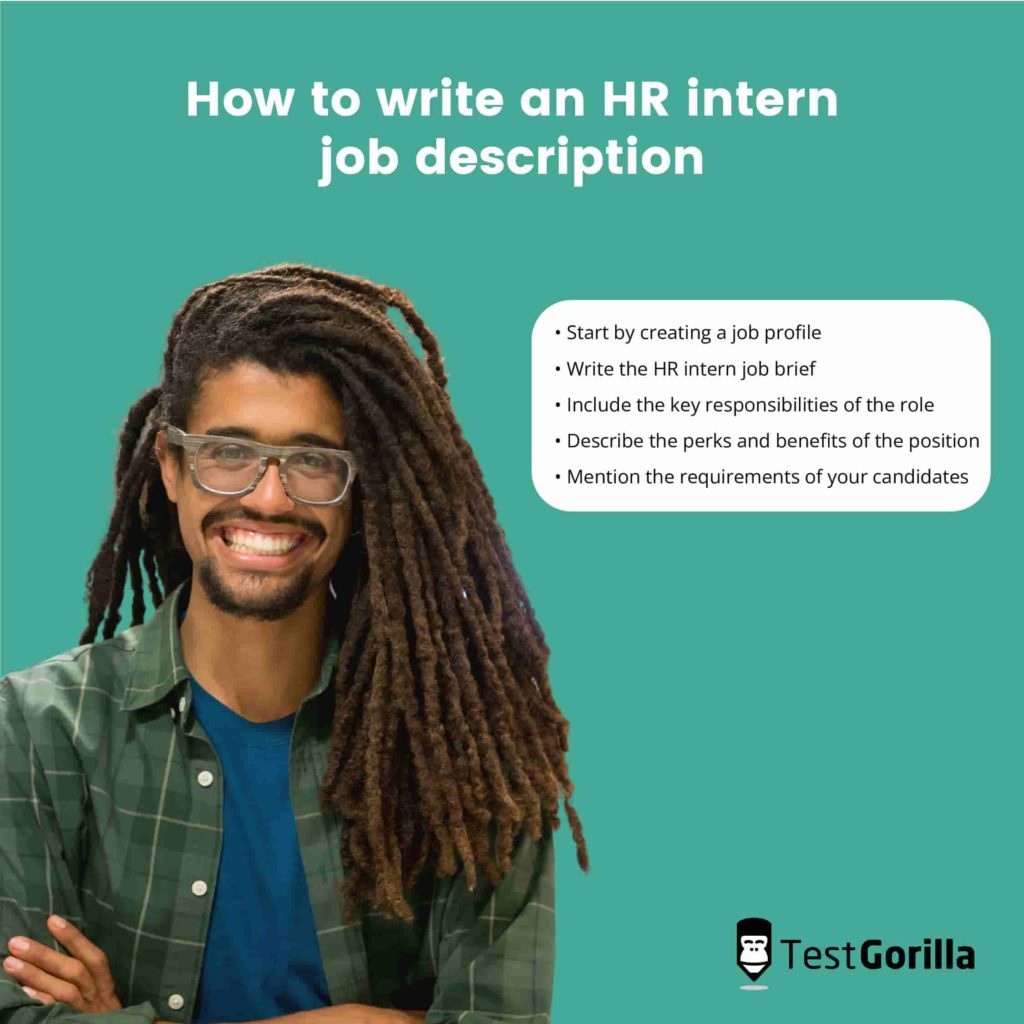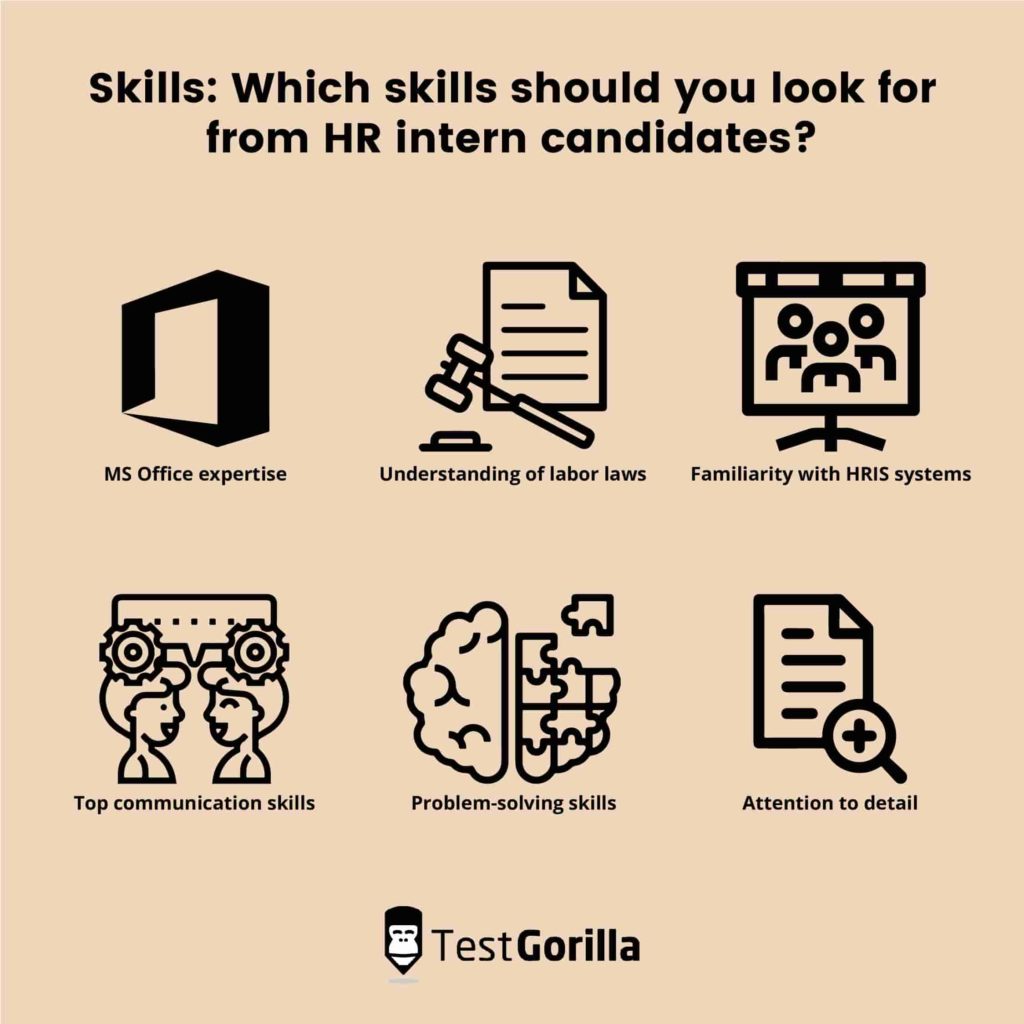Are you looking for an HR intern to join your recruitment team?
There are several steps to the recruiting process, and it can be a complicated process.
While an HR intern can be a valuable asset to your company, you should follow a few recruiting best practices and be aware of the key stages in hiring the ideal candidate.
The good news is that if you want to discover the best ways to locate and recruit the right HR intern for your company, this guide will reveal the essential methods for easily sourcing and hiring candidates effortlessly!
Take a look and find out.
What do HR interns do?
Although your organization may require an HR intern to do various specific functions, there are some common HR intern responsibilities. They include database maintenance, advertising new jobs, and organizing interviews after screening resumes.
Database updating
In general, HR interns are tasked with updating their organization’s internal databases with the contact details of new employees, which includes uploading new employee application forms.
Posting new jobs
An HR intern is in charge of posting new jobs on various job boards, including social media channels, as well as niche- and traditional job boards. Their tasks include eliminating expired job ads from these channels and job boards as well.
Screening resumes and arranging interviews
HR interns are often responsible for scheduling interviews with shortlisted candidates. This happens after they have assisted HR professionals with screening resumes and managing any supporting data provided by applicants to help with talent acquisition.
How to write an HR intern job description
To hire an intern, you must first attract them with a job description, which is usually the first time your candidates hear about your company.
Here’s how to draft a job description for an HR intern.
1. Start by creating a job profile
According to Baylor University, A job profile summarizes the duties, essential functions, and responsibilities of a given job.
It’s a document that explains the role’s expectations. You should keep in mind the key difference between a job profile and a job description.
A job profile describes the personal qualifications, skills, traits, and other relevant qualities of the role, whereas a job description focuses on the specific duties that an intern must perform.
Job profiles are important because they help HR internship candidates determine whether their skills and expertise in the relevant areas correspond with the position’s requirements.
Recommended reading: How to write great job descriptions [job description template included]
2. Write the HR intern job brief
An HR intern job description outlines why the position exists. In addition, the job brief should outline what you expect the candidates to accomplish during the human resources internship or throughout the months they will be employed with your organization, especially if you intend to hire them as full-time employees after the internship.
The HR intern job description should also explain the significance of the HR intern role and how it fits into the organization on a day-to-day basis.
3. Include the key responsibilities of the role
In your job description, you should also mention the key responsibilities of the HR internship. For example, in addition to the duties listed above, your HR intern may also be responsible for:
Starting the process of conducting background checks on candidates
Obtaining payroll information from employees, such as their working hours
Assisting other HR professionals in the organization to develop onboarding activities
4. Describe the perks and benefits of the position
Does your HR internship vacancy offer perks and benefits to attract candidates to your organization?
If you offer benefits such as career progression opportunities, a salary, or travel allowances for candidates, highlight these incentives in the center of the job description before the skills and candidate requirements.
When mentioning the perks and benefits, enticingly convey them.
For instance, if your organization provides career progression opportunities, you may also indicate that candidates can expect significant salary increments as they advance within your organization and the opportunity to develop a wide range of unique skills.
5. Mention the requirements of your candidates
Include a section describing the skills you’re looking for and the expectations you have of your candidates. This might include credentials, qualifications, and work experience in addition to the specific skills required for the role, so if you’re looking for candidates with a bachelor’s degree or a certain GPA, specify it here.
The best insights on HR and recruitment, delivered to your inbox.
Biweekly updates. No spam. Unsubscribe any time.
Which skills should you look for from HR intern candidates?
Some of the critical skills that you should look for from your HR internship candidates include:
Hard skills: such as experience with Microsoft Office, working knowledge of labor laws, and knowledge of HRIS systems (Human Resources Information Systems),
Soft skills: such as communication skills, problem-solving abilities, and attention to detail.
MS Office expertise
How well-versed are your HR internship candidates with Microsoft Office applications like Microsoft Word, Excel, PowerPoint, and Outlook? These skills are necessary for HR internship roles. Therefore, look for an indication that your candidates are proficient in these areas during the resume screening process.
Understanding of labor laws
Do your candidates understand US labor laws and how they impact the hiring process?
According to Northwest Missouri State University, labor laws are critical for assisting HR professionals and their organizations in avoiding lawsuits, fines, and legal expenses. So look for candidates familiar with such laws as the Civil Rights Act and the Equal Pay Act to protect your organization.
Familiarity with HRIS systems
Are your candidates aware of what HRIS systems are and how they work? Although HRIS systems are required to effectively administer human resources tasks, understanding these systems can give your candidates a head start in your organization.
Top communication skills
Can your HR internship candidates communicate effectively? Can they provide examples of situations where their communication assisted them in resolving a recruiting challenge? This might involve written or verbal communication skills, such as communicating with employees about onboarding activities via email or verbally.
Examine your candidates’ resumes to determine if your HR interns have the necessary communication skills for your open positions.
Problem-solving skills
Do your candidates possess the right problem-solving skills for your HR internship position? Not only should candidates be able to break issues down to make them easier to tackle, but they should also determine the best solutions to solve these smaller problems.
For instance, are they able to coordinate the schedules of the recruiting team and their applicants to organize interviews and communicate back and forth between candidates and interviewers?
Attention to detail
Do your internship candidates have attention to detail skills, and will they apply them effectively in their role to screen resumes?
You may check whether your candidates’ resumes have errors to evaluate their attention to detail and use other approaches to assess this skill and the others indicated above.
How can you evaluate HR intern candidates’ skills?
Skill testing and structured interviews are additional methods to evaluate your HR intern candidates.
Skills testing
Skills testing involves asking HR intern candidates to complete a skills assessment, which evaluates various hard and soft skills, such as organizational skills, essential to the job.
The best skills testing platforms will make custom questions available, such as essay response questions, video response questions, and multiple-choice questions. It makes it easier to avoid unconscious bias and compare the skills of your candidates’ on a level playing field.
Skills tests can assess your HR intern applicants’ abilities, such as attention to detail, problem-solving, communication, and their level of competence with Microsoft Office.
Structured interviews
A structured interview comprises several closed and open-ended questions designed and prepared before the interview. During the interview, ask your candidates questions and gain additional insight by asking them follow-up questions.
Compared to an unstructured interview, the key advantage of employing structured interviews is that you can control the time of the interview and standardize the testing process more efficiently.
4 interview questions to ask your HR intern candidates
The following are four interview questions you might ask your HR intern candidates during a structured interview:
1. Why would you like to work with this company?
Ask this question to find out whether the candidate is interested in HR, passionate about your organization, and may potentially want to develop and grow in their career with your team.
2. In five years, where do you see yourself?
Ask candidates this question to determine how devoted applicants are to growing their talents and advancing in their jobs. Are they enthusiastic about HR, and do they want to improve in the future?
3. Do you have any experience with HR software?
Ask them this question to determine how aware and knowledgeable they are about HR systems such as applicant tracking systems or HRIS systems. Knowledgeable candidates will understand what the HR software does and how it simplifies the recruitment process.
4. How are HR departments crucial for organizations?
Find out if your candidates understand the role of an HR department within the context of the wider organization and understand how important their job will be in resolving recruiting and onboarding challenges.
Hire HR interns the easy way: Use TestGorilla to make hiring simple
Finding qualified applicants and hiring an HR intern can be challenging, but methods can simplify the process. Remember to:
Describe the perks and benefits of the internship before you mention the requirements
Use skills testing to screen candidates for the skills the job requires effectively
Conduct a structured interview to dig deeper and learn why candidates want to work for your organization
Don’t forget to check out TestGorilla’s assessments and skills tests to make candidate assessment a breeze and hire HR interns easily. Get started for free
You've scrolled this far
Why not try TestGorilla for free, and see what happens when you put skills first.




















